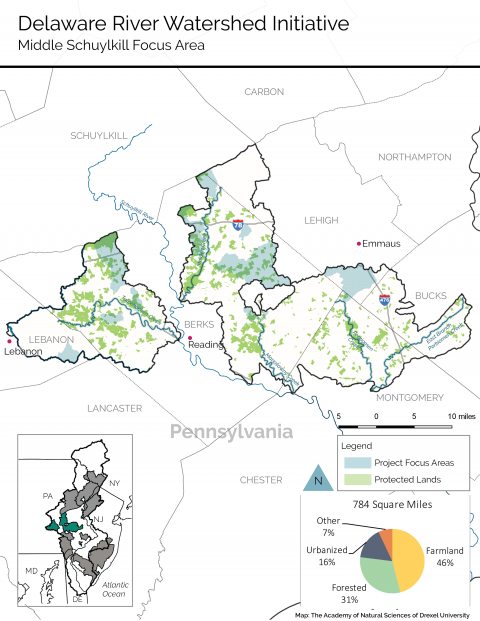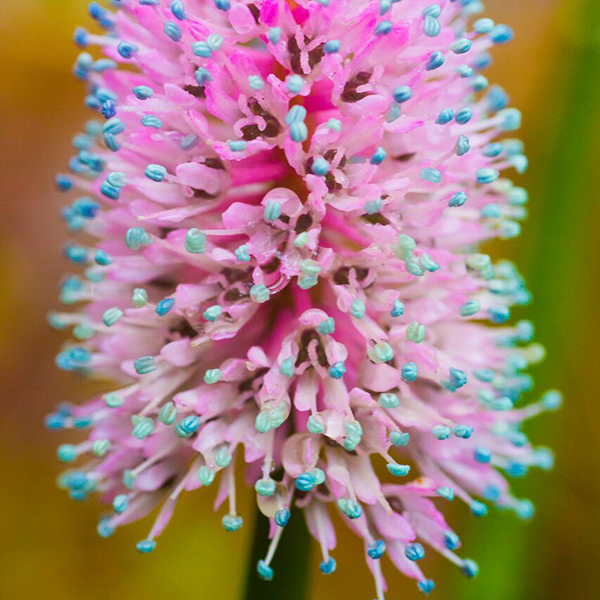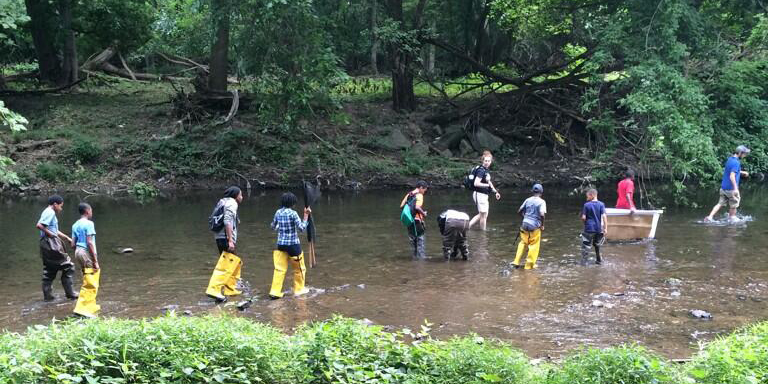The Middle Schuylkill Cluster covers more than 500,000 acres and includes much of Pennsylvania’s Berks and Montgomery Counties and parts of Bucks, Lebanon and Lehigh Counties. It encompasses portions of the Schuylkill’s largest tributaries—Perkiomen Creek, Maiden Creek and Tulpehocken Creek—as well as Manatawny Creek and Monocacy Creek.
Historically, this region was the “bread basket” of colonial America because it contains some of the basin’s most fertile farmland, and many of its communities are still tied to the land for this reason. These five sub-watersheds are primarily rural, with 77 percent of the lands in farms or forests. Farmers use the land for row crops, pastures, dairy cattle and other livestock.
Forests are associated with well-known highlands in the region, including the Oley and Unami Hills, Kittatinny Ridge and South Mountain. Reading and Pottstown are the biggest urban centers, though the cluster organizations have excluded much of the most-heavily developed areas to maintain focus on agricultural issues.



